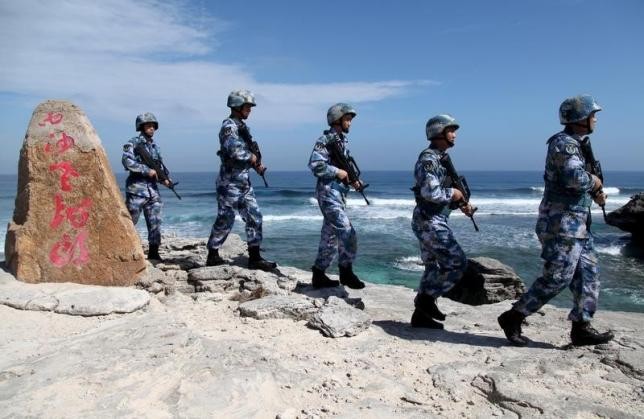Chinese President Xi Jinping reveals plans to cut back on the budget of the People’s Liberation Army due to the country’s economic slowdown as the United States urges Taiwan to increase its military spending.
Citing the army's official mouthpiece, the South China Morning Post reported how Xi pointed out the lack of proper management in the PLA's budget.
According to him, the army should refrain from initiating massive projects that require too much money but do not yield results to match the costs.
Meanwhile, the U.S. is advising Taiwan to increase its army's budget in order to be able to defend against any action from China that prevents the island's formal independence from the mainland.
PLA Budget Cut
"In the face of mounting pressure resulting from the economic downturn, with a slowdown in budgetary income and growing expenditure, it is not easy to secure a normal rise in the military budget anymore," Xi said in the PLA Daily article cited by the SCMP.
According to the Financial Times, China's legislators only approved a 7.6-percent year-on-year increase in military expenditure to $145 billion, the first instance where the PLA gets a single-digit increase in their budget since 2010.
Last year, military spending reached 10.1 percent, which was no problem at the time because the economy was stronger.
Now, the PLA Daily article said that the army should still increase research on military theory to make sure the advanced technology they have acquired is put to good use.
The outlet said that the budget cut came despite calls for another two-digit increase for the Chinese military.
Taiwan's Military Capacity
Pentagon's annual report to the Congress warns Taipei about China's continued development and deployment of military forces to prevent the island from achieving independence.
Citing the report, Focus Taiwan noted that China's PLA "continues to develop and deploy military capabilities intended to coerce Taiwan or to attempt an invasion, if necessary," something the small nation should be prepared for.
"These improvements pose major challenges to Taiwan's security," the U.S. Defense Department report said.
"Following Taiwan's January 2016 presidential and legislative elections, China has stressed that denying the '1992 consensus' would make peace and development impossible," the report said, as cited by Taipei Times, noting the amount of pressure Tsai Ing-wen's administration appears to be under.
The U.S. noticed that while Tsai vowed to "maintain the status quo," she has not endorsed the mainland's interpretation of the 1992 consensus, which ultimately differs from the outgoing administration of the Chinese Nationalist Party (KMT).



























